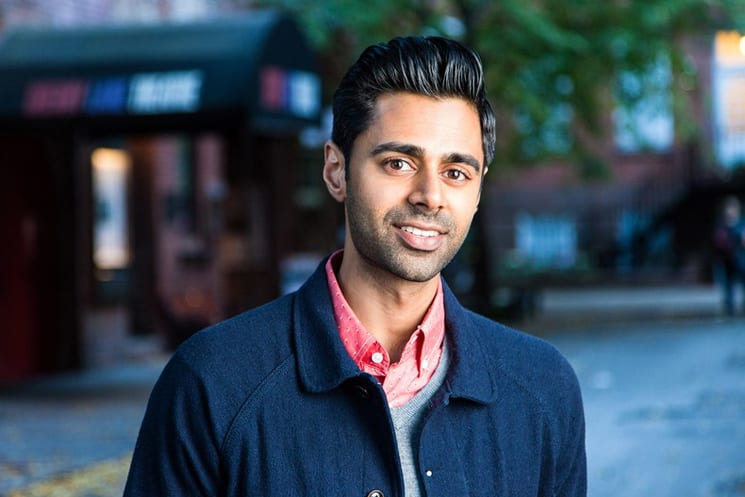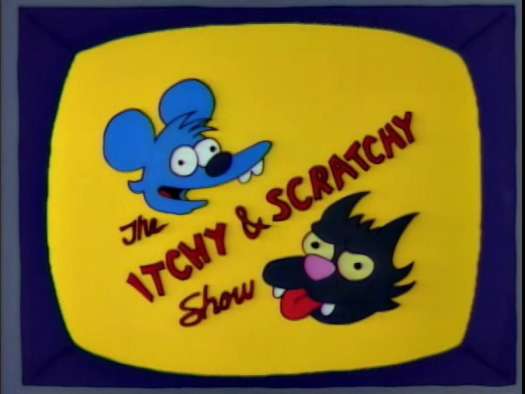At an airport in Minneapolis, Hasan Minhaj has just ordered a hot coffee and requested a special ingredient: ice cubes.
"I know I'm being a weirdo right now," he says, getting back on the phone. "I like to have straight up black coffee, but when you get it, sometimes you'll burn your tongue or it spills on your hands and you get third degree burns. I happen to be the kind of human being who doesn't want to sue coffee companies for money so I just say, 'Hey, can you give me some coffee, but can you also give me like, eight ice cubes.'
"Sometimes people look at me like I'm crazy," he adds. "And sometimes they look at me like, 'Oh dude, I totally get it. You're a smart man.'"
Indeed, Minhaj is a talented comedian and writer currently based in New York City. Having gained acclaim for his web series The Truth with Hasan Minhaj and his work as a standup comedian and actor, Minhaj earned a spot as a senior correspondent on The Daily Show with Jon Stewart, where he continues to appear with Stewart's replacement, host Trevor Noah.
Between September 23 and 25, Minhaj will appear at Toronto's JFL42 comedy festival with his highly successful off-Broadway show, Homecoming King.
He was one of the last on-air correspondents Stewart hired before leaving the show and Minhaj has been effusive in praising his former boss, as a "comedy Yoda."
"Jon's advice has always been, 'Move toward your discomfort and talk about things that people aren't willing to talk about and do the show you feel needs to be done,'" Minhaj explains. "That's all we're trying to do."
It's useful advice, because The Daily Show has endured increased scrutiny from critics who believe the show has lost some of its incisiveness and vigour under new host, Noah, who is also performing as a JFL42 headliner this year.
"It's like, 'Hey, you're the new guy and we miss the old guy,'" Minhaj says, addressing the scrutiny about Noah and the program. "This has happened to every talk show host who takes a desk that was once helmed by someone else. They did this to Fallon, Conan, Leno — they do it to everybody.
"Look, I know him from before when he was a correspondent on the show — he's one of the most talented, charismatic, charming comedians working in the world. It's not a fluke that he's there. I watch and I'm amazed by how quickly he has found his rhythm. I really thought that we, as a show and Trevor as the host, really turned a corner as a group coming out of the RNC and DNC. That was awesome and so fun.
"Trevor is adding his voice to the chapter of The Daily Show," Minhaj explains. "We had it with Kilborn, we had it with Stewart, now we have it with Trevor. My job as a correspondent is, I'm an ensemble player on this really fun political satire show and I get to have my own take on things. What's really fun is, Trevor has given all of us correspondents such freedom to come in and pitch ideas and talk about what's really important to us."
Canadians might be most familiar with Minhaj's segment comparing our acceptance of Syrian refugees to many Americans' reticence and fear about doing the same, which culminated in a funny, one-on-one interview with Prime Minister Justin Trudeau.
"That was unbelievable. It was great to spend time with Canada's Obama. He is as handsome as advertised and super funny. Such a talented dude. The only thing that surprised me was how incredible the twinkle in his eyes was in person. I'll be honest, the first five minutes of the interview, I was really nervous. I was like, 'I hope this guy asks me out man.' I felt like we were in a Hallmark movie."
Unrequited love is actually a theme of sorts in Minhaj's Homecoming King, which recounts his actual attempt to attend his high school prom in Davis, California with one Bethany Reed. When he arrived at her doorstep in his tux, Minhaj was rebuffed by Reed's parents who worried about what photos of the interracial date would look like to relatives back home in Nebraska.
"When you grow up as a minority in a majority culture, a lot of times you're just trying to fit in," Minhaj says. "One of the things I talk about in the show is, when you're white, it just means you're being accepted and less people are going to ask you questions. It's what makes any sort of minority story where you make it in the mainstream so amazing. Because at every conceivable level — whether you're Barack Obama, Jackie Robinson or Russell Peters — at some point it was always like, 'Who are you? Your name is what? You're trying to do that? I don't think so.'
"So, in the show, I talk about my journey through all of that but from a place of empathy. I'm acknowledging systemic problems within our country but at the same time I believe there's a tremendous amount of potential within all human beings for empathy, forgiveness, and love. I think there are people from every side who are allies for justice and good."
Listen to this interview via the Kreative Kontrol podcast:
"I know I'm being a weirdo right now," he says, getting back on the phone. "I like to have straight up black coffee, but when you get it, sometimes you'll burn your tongue or it spills on your hands and you get third degree burns. I happen to be the kind of human being who doesn't want to sue coffee companies for money so I just say, 'Hey, can you give me some coffee, but can you also give me like, eight ice cubes.'
"Sometimes people look at me like I'm crazy," he adds. "And sometimes they look at me like, 'Oh dude, I totally get it. You're a smart man.'"
Indeed, Minhaj is a talented comedian and writer currently based in New York City. Having gained acclaim for his web series The Truth with Hasan Minhaj and his work as a standup comedian and actor, Minhaj earned a spot as a senior correspondent on The Daily Show with Jon Stewart, where he continues to appear with Stewart's replacement, host Trevor Noah.
Between September 23 and 25, Minhaj will appear at Toronto's JFL42 comedy festival with his highly successful off-Broadway show, Homecoming King.
He was one of the last on-air correspondents Stewart hired before leaving the show and Minhaj has been effusive in praising his former boss, as a "comedy Yoda."
"Jon's advice has always been, 'Move toward your discomfort and talk about things that people aren't willing to talk about and do the show you feel needs to be done,'" Minhaj explains. "That's all we're trying to do."
It's useful advice, because The Daily Show has endured increased scrutiny from critics who believe the show has lost some of its incisiveness and vigour under new host, Noah, who is also performing as a JFL42 headliner this year.
"It's like, 'Hey, you're the new guy and we miss the old guy,'" Minhaj says, addressing the scrutiny about Noah and the program. "This has happened to every talk show host who takes a desk that was once helmed by someone else. They did this to Fallon, Conan, Leno — they do it to everybody.
"Look, I know him from before when he was a correspondent on the show — he's one of the most talented, charismatic, charming comedians working in the world. It's not a fluke that he's there. I watch and I'm amazed by how quickly he has found his rhythm. I really thought that we, as a show and Trevor as the host, really turned a corner as a group coming out of the RNC and DNC. That was awesome and so fun.
"Trevor is adding his voice to the chapter of The Daily Show," Minhaj explains. "We had it with Kilborn, we had it with Stewart, now we have it with Trevor. My job as a correspondent is, I'm an ensemble player on this really fun political satire show and I get to have my own take on things. What's really fun is, Trevor has given all of us correspondents such freedom to come in and pitch ideas and talk about what's really important to us."
Canadians might be most familiar with Minhaj's segment comparing our acceptance of Syrian refugees to many Americans' reticence and fear about doing the same, which culminated in a funny, one-on-one interview with Prime Minister Justin Trudeau.
"That was unbelievable. It was great to spend time with Canada's Obama. He is as handsome as advertised and super funny. Such a talented dude. The only thing that surprised me was how incredible the twinkle in his eyes was in person. I'll be honest, the first five minutes of the interview, I was really nervous. I was like, 'I hope this guy asks me out man.' I felt like we were in a Hallmark movie."
Unrequited love is actually a theme of sorts in Minhaj's Homecoming King, which recounts his actual attempt to attend his high school prom in Davis, California with one Bethany Reed. When he arrived at her doorstep in his tux, Minhaj was rebuffed by Reed's parents who worried about what photos of the interracial date would look like to relatives back home in Nebraska.
"When you grow up as a minority in a majority culture, a lot of times you're just trying to fit in," Minhaj says. "One of the things I talk about in the show is, when you're white, it just means you're being accepted and less people are going to ask you questions. It's what makes any sort of minority story where you make it in the mainstream so amazing. Because at every conceivable level — whether you're Barack Obama, Jackie Robinson or Russell Peters — at some point it was always like, 'Who are you? Your name is what? You're trying to do that? I don't think so.'
"So, in the show, I talk about my journey through all of that but from a place of empathy. I'm acknowledging systemic problems within our country but at the same time I believe there's a tremendous amount of potential within all human beings for empathy, forgiveness, and love. I think there are people from every side who are allies for justice and good."
Listen to this interview via the Kreative Kontrol podcast:




